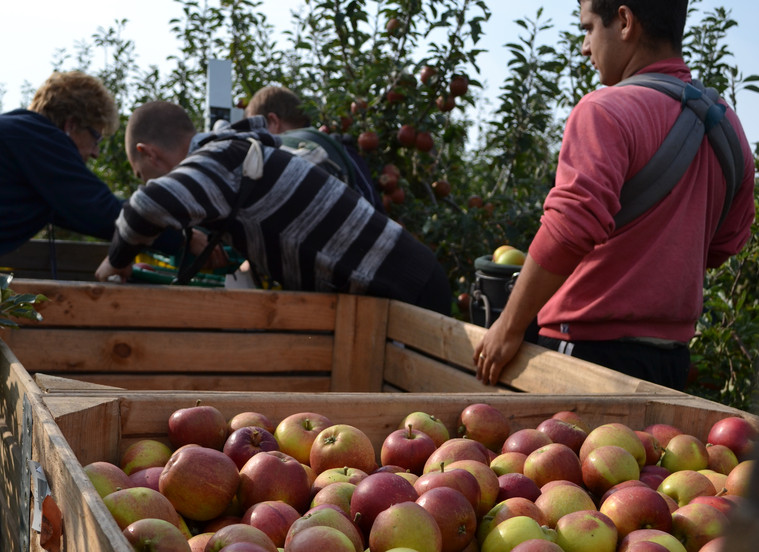The latest RED Talk looked at whether Coronavirus is an opportunity to review our broken food system. The pandemic has changed how consumers value food; how they shop and how they eat. It is also causing disruption in the global food supply chain; scarcity of inputs to produce food, a shortfall in labour to harvest crops, disruptions in transportation and loss of markets are causing complex international supply chains to break.
In June last year Henry Dimbleby was appointed by DEFRA to conduct an independent review of the food sector to help the government create its first National Food Strategy for 75 years. The purpose of the review is to address the environmental and health problems caused by our food system, to ensure the security of our food supply, and to maximise the benefits of the coming revolution in agricultural technology. The National Food Strategy and subsequent refashioning of the country’s food system would necessarily involve a review of the workforce. In fact, delivering well paid jobs is one of the Strategy’s stated aims and domestic employment is essential for delivering other strategic aims such as a food system which is robust in the face of future shocks and a resilient agriculture sector.
Like many industrialised countries the UK food and farming industry relies on seasonal migrant labour. The Coronavirus pandemic has exposed how fragile the food supply chain is to international travel disruptions. Unless a domestic workforce can be mobilised it does not bode well for the future of the food system when Brexit brings an end to the EU’s Freedom of Movement laws.
Campaigns such as DEFRA’s Pick for Britain which raise public awareness of employment opportunities within the food and farming industry are widely supported by businesses which have thousands of vacancies to fill. Mark Lumsdon-Taylor, Founder and Chair of Rural Policy Group said, “The polls showed 42% of enterprises backed public awareness campaigns, and rightly so because they do a tremendous job encouraging UK workers who may not have thought about a career in farming or food production to have a go at something new. One might have expected approval for campaigns such as Pick for Britain to be higher but there is growing sentiment among industry players that they are having to beg people to work for them and as in any industry, recruiting, training and developing new staff is expensive and time-consuming. This may be why the poll indicated a slight preference for proven foreign labour”.
Many farmers and businesses in the food system rely on an experienced migrant labour force, primarily from Eastern Europe, which returns year after year. To misquote Prince Charles’ appeal for Pick for Britain appallingly and inappropriately, foreign pickers are stickers. Anecdotally, the industry has not always been able to say the same for its homegrown employees. The most popular solution to the ongoing labour shortage – with the support of nearly one in two businesses – was to accept that foreign labour is fundamental to food production and build this into the national workforce strategy. To further reinforce this preference for a proven migrant workforce, only a quarter of those in food and farming thought introducing ‘benefit holidays’ to allow the UK’s claimants to take up seasonal roles was a good idea. Reliance on foreign labour is merely a reliance on experience and proven skill. Farmers have a very short window to harvest their crops so they need the best pickers. An enthusiastic but inexperienced domestic picker would not initially be able to pick at the same rate as the seasoned professional. Farming’s ability to move towards a greater reliance on the domestic workforce will correspond to rising skill level and experience among British pickers.
The debate’s keynote speaker Daniel Zeichner, Shadow Environment Minister and MP for Cambridge believes that refashioning a more sustainable food system involves the creation of more and better jobs for people in the UK – we shouldn’t need to move people across the world to make our food system work.
Mark Lumsdon-Taylor concurred: “I would urge British people seeking employment to investigate the myriad careers available in the food and farming industry. It is a highly innovative sector offering competitive rates of pay and opportunities for advancement. I think many people who are not involved in the industry would be pleasantly surprised by modern farming practices and the variety of opportunities available”.
The advances being made in agricultural technology will change the size and shape of the workforce and hopefully entice more British employees into careers in food and farming. Teresa Wickham, Advisor to the CSR Board of Sainsbury’s and food supply chain commentator says, “Technology will continue to change how we harvest, how we grow and even the level of nutrition we can achieve in our food”. There have been and will continue to be lots of exciting developments calling for a workforce with skills in science, robotics and engineering. Technological progress brings with it a wave of exciting job opportunities and new career pathways in the food and farming industry. At this very moment a 24-armed harvesting robot is being trialled in America; this type of breakthrough will change the profile of harvest jobs from “low-skilled” pickers to higher-skilled roboticists, engineers and mechanics.
Sarah Calcutt, sixth generation farmer, Operations Director of British Apples and Pears, Chair of the National Fruit Show and Non-Executive Director of Covent Garden Market Authority asserts: “Food and farming offer such exciting opportunities, we need to tell our story better to bring the best people into the sector”.




